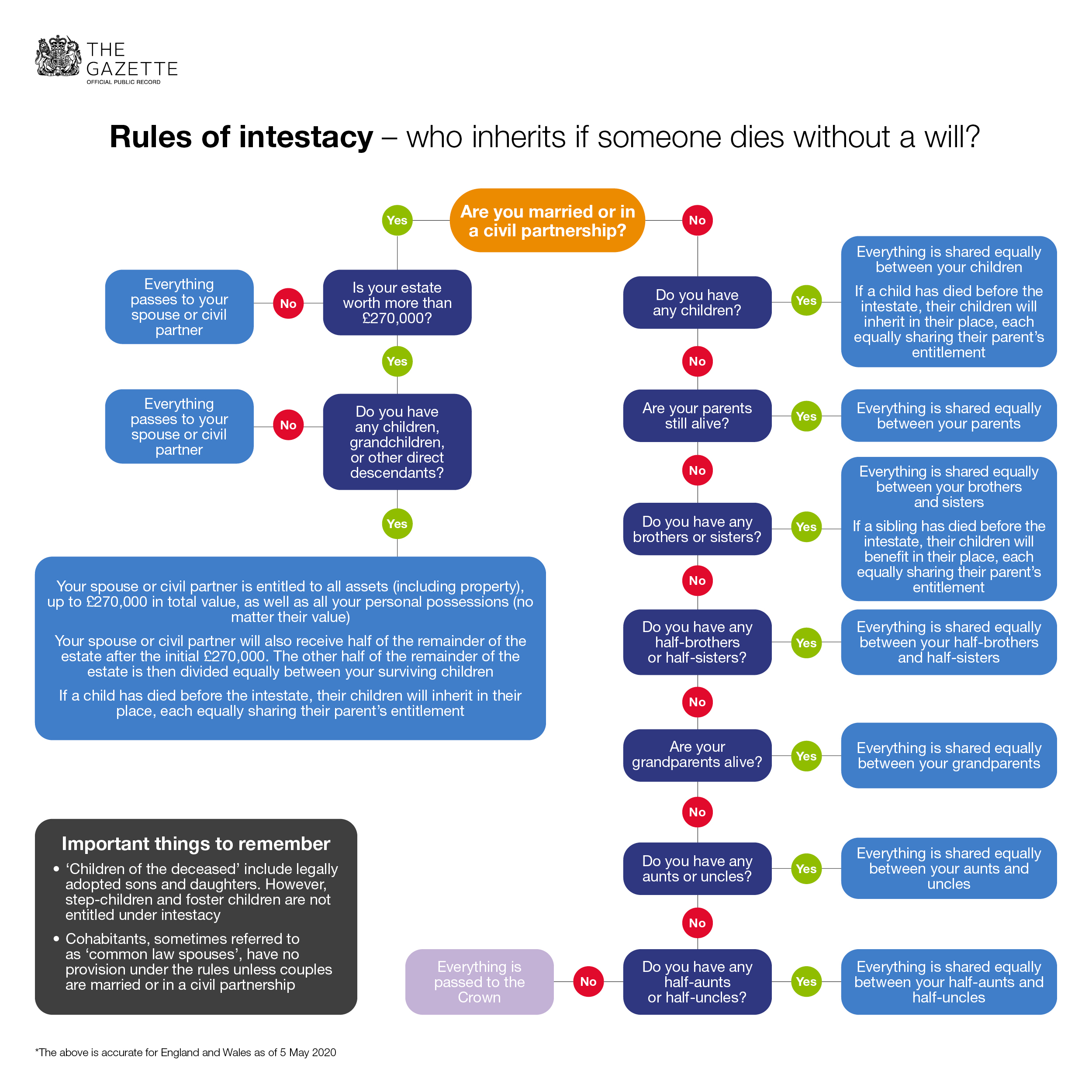Is there an intestacy? How to tell if a will is fraudulent
The Society of Trust and Estate Practitioners (STEP) estimates that the cost of probate fraud is in the region of £150 million. In this article, Nick Flower and Rosie Kelly, of Anglia Research, explain what to look for if you suspect fraud.
Types of probate fraud
The general legal definition of fraud is ‘an intentional deception made for personal gain or to damage another individual’. In wills and probate, this can include fraudulent calumny, a particular type of undue influence, whereby the instigator secures their place in the will by making false and defamatory statements about other potential beneficiaries. Although difficult to prove in court due to the likelihood that such conversations have taken place privately, this is probably the more common form of inheritance fraud.

Another type of probate fraud is when the executor of a will manipulates the figures for their own benefit. An executor has a fiduciary obligation to act in the estate beneficiaries' best interest and so these cases are normally dealt with as breach of fiduciary claims. According to the Gazette, a 2014 Ombudsman report found a 30% increase in these types of claims lodged at the Chancery Division between 2012 and 2013, suggesting that there may well be a rise in this particular type of probate fraud.
Although it is a less common occurrence, a will can also be challenged on the grounds of outright forgery. The forgery may have been undertaken by an amateur, in which case it is likely to have been carried out by somebody close to the deceased or in a position of trust, who might realistically have benefited from the will. This includes family, friends, neighbours, carers and professionals.
Amateur forgery at its worst
A few years ago, the Telegraph reported the incredible but true story of a young wife, who forged her deceased elderly husband’s will in a bid to secure the lion’s share of his estate. The couple had surprised friends and family by marrying in 2004, when Newton Davies was 76 and Marsha Henderson was in her twenties. When Mr Davies died at the age of 85, he left his wife only £25,000 of his £600,000 estate, in a properly drafted and executed will from July 2011. The majority of Mr Davies’ fortune was left to his only child and daughter from a previous marriage, Paulette Davies, and a long-standing good friend. Ms Henderson then produced a badly forged will, dated August 2011 that she claimed to have found inside a discarded crisp packet in the loft of the Wembley home, from which she stood to benefit by £550,000.
Judge Nigel Gerald, who heard the case at the Mayor’s and City of London Court, ruled that the August will was a forgery and refused to admit it into probate. Philip Noble, acting for Ms Davies, intimated that his client would also be requesting an order for the payment of £42,000 in rent for the period in which Ms Henderson had been occupying her dead father’s home while the dispute was ongoing. Judge Gerald made the following comments regarding the inept drafting and farcical circumstances of the forgery:
"The most striking defect is that the attestation clause itself refers to it being ‘HER last will.’ The deceased was a man and not a woman. In the circumstances of this case I do not regard this as a trifling or inconsequential defect."It is inherently unlikely that the deceased would go into the loft in November 2011, find an empty Doritos bag and put his will in it. There is eccentric and there is ridiculous - and this is ridiculous … I cannot take judicial notice of the size of a Doritos bag, but as far as I am aware it is smaller than an A4 piece of paper. None of this makes too much sense. It is plain that Ms Henderson is lying.”
In the example relayed here, it was clear from the outset that the will was a fake, but most forgeries will be carried out with more caution and may be difficult to spot. Below we set out some of the key things to look for that could indicate fraud or dishonesty.
Suspicious circumstances - what to look for:
- unexpected or anomalous changes to the will
- changes made immediately prior to the death, naming new or unfamiliar beneficiaries
- what is contained in the will doesn’t reflect the testator’s stated wishes
- all witnesses to the will are untraceable or have passed away
- all witnesses to the latest will are people close to the new beneficiary and not the testator
- withdrawals or transfers prior to death that are irregular or made while the deceased was unwell in hospital
- withdrawals or transfers made following the death
- a new individual being added to the testator’s bank account preceding the death
- the appointment or change to an unexpected executor ahead of the death
- anomalous and possibly false debts
- emails requesting payments to third parties
- individuals claiming to be the solicitor or executor who are not the appointed people
- cash reserves or items of worth missing from the home of the deceased
- the signature or any handwriting does not correspond to that of previous wills
- the person who most benefits from the will was instrumental in making the will
It goes without saying that unconventional wills may be more easily forged and should be subject to particularly stringent checking.
Professional forgery
Fraud may also be professional, and there are individuals and organised criminal groups that make a living from falsifying various official documents, including wills.
A number of years ago, Anglia Research was instrumental in exposing such a criminal. The fraudster, who shall remain anonymous, was acting alone and had set up as an ‘heir hunter’. He targeted high value intestacies, using antiquated typewriters to produce counterfeit will forms of the type that were used by sailors in the Navy, which he then completed and signed by hand with fake witnesses, leaving assets to various charities and, in effect, disinheriting any blood relatives. The man then claimed to discover the wills and approached the beneficiaries, charging them a hefty percentage fee from the estate as a ‘finders fee’.
Anglia Research became aware of the fraudster when they located relatives entitled to an intestacy that failed because of one of these fraudulent wills. Thankfully, the lawyers looked afresh at the document with the aid of a handwriting expert. The expert compared the will with the alleged testator’s signing up form for the Navy. The provenance – or age – of the paper itself was also finally checked. The will was declared a forgery and all of the claimants were therefore entitled to inherit under the rules of intestacy. Although the fraud was reported to the proper authorities, no prosecution was made due to the advanced age of the criminal.
What to do if fraud is suspected
Contesting the will on the basis of fraud is a criminal matter and therefore requires a high degree of proof – it must be proved ‘beyond reasonable doubt’ that the will is a fraud. This will be the appropriate route to take when there has been an outright forgery, and usually involves the evidence of a handwriting expert, as well as evidence relating to the physical materials used in the will.
Often, when there is a suspicion of dishonesty, it may be easier to prove that the testator did not have the requisite ‘knowledge and approval’ of the contents of the will for the will to be considered valid. If there is proof of testamentary capacity and due execution there is usually a presumption that there was sufficient knowledge and approval. However, the court should be satisfied that the will reflects the true intentions of the testator at the time of signing, irrespective of the ‘righteousness of the transaction’ (Fuller v Strum [2002] WLR 1097). In suspicious circumstances, the court will therefore require proof of knowledge and approval, and the higher the degree of suspicion, the more evidence will need to be produced to dispel it; see Vaughan v Vaughan [2005] WTLR 401 and Reynolds v Reynolds [2005] EWHC 6 (Ch). Since lack of knowledge and approval is a civil rather than criminal matter, it must only be proven on the balance of probabilities, meaning that if enough doubt can be cast over the will then it may be declared invalid.
Either way, if there is the suspicion of fraud, the will should be challenged in court at the earliest opportunity to ensure that it does not enter probate. If the challenge is successful, the estate will either be distributed according to the previous valid will or, if there is none, the law of intestacy will be applied and the assets in the estate will be distributed to surviving relatives accordingly.

About the authors
Solicitor Nick Flower is head of probate administration and Rosie Kelly is a legal and compliance executive at Anglia Research.
See also
Notification service that eases the burden when someone dies
Place a deceased estates notice
Applying for probate: a step-by-step guide from Which?
You may also be interested in
Tell Us Once (DWP)
Image: Getty Images
